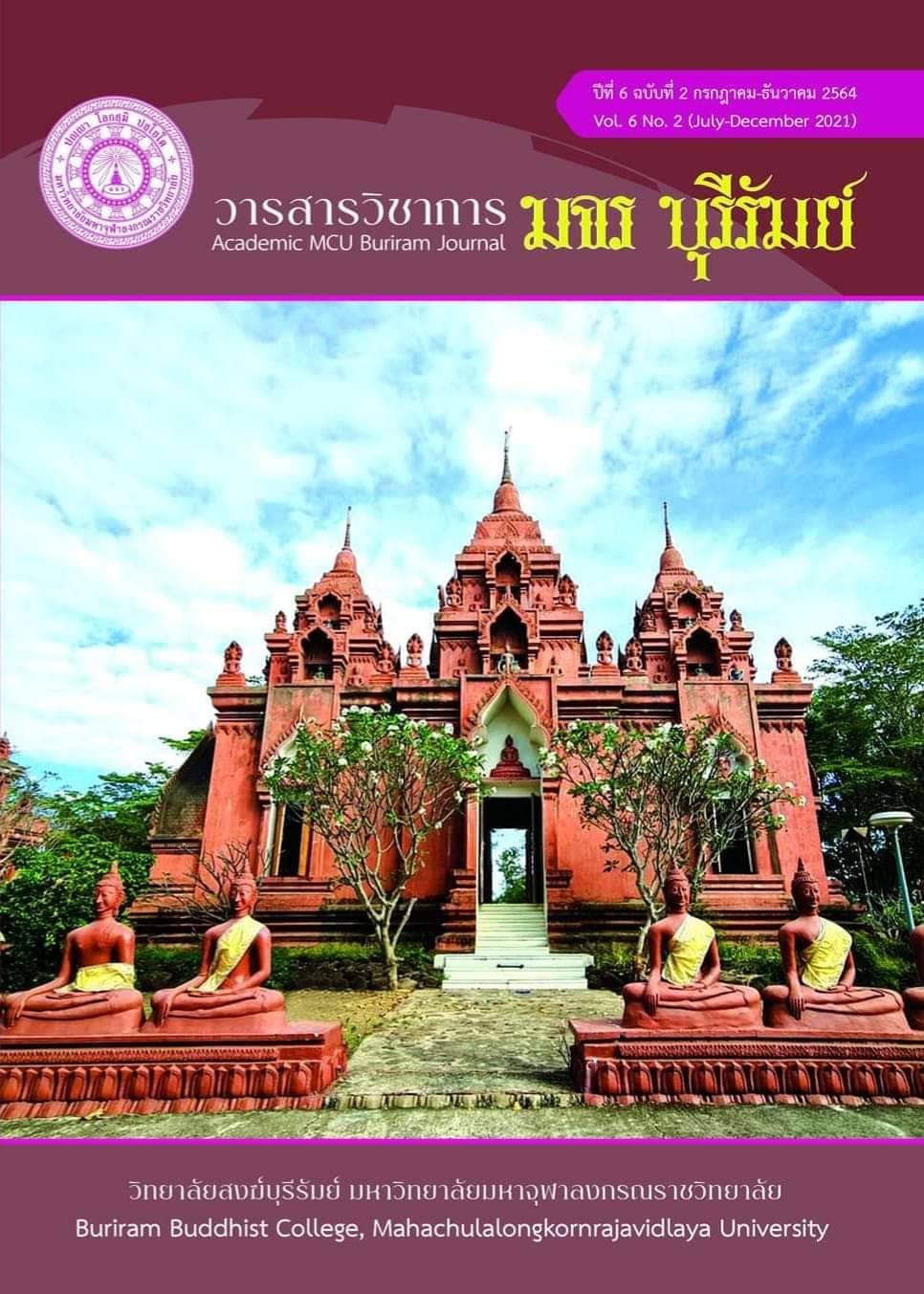Power of Boworns (Community, Temple and School) in Driving the Buddhism Moral Community in Thai Society
Keywords:
Power of Baworns (Community, Temple and School), Driving, Buddhism Moral Community, Thai SocietyAbstract
This academic article aims to study the power of Boworns (community, temple and school) with drivingthe Buddhism moral community. There is an important process of moving and the goal is that people in the community live together happily, know how to live life with the right thing. The power of Baworns (community, temple, and school) is the important procedure in driving the Buddhism moral community. This power is the 3 main organizations in the community to become a mechanism to develop and strengthen the community as the core in the development, decision making and salutation joint the communities’ problems to become the moral community. The school has a role in treating youth to be good members of society and able to live happily in society. At the same time, the community has a role and importance to the educational management of the school in the both terms of being a source of learning cultural heritage, traditions, values of society. Also, the temple has a role to train the members of the community to become the good people in the society. Therefore, "Boworn" (community, temple and school) is the important organization in the area to help develop Thai people since the past until today.
References
กรมการศาสนา กระทรวงวัฒนธรรม. (2561). การดำเนินงานชุมชนคุณธรรมขับเคลื่อนด้วยพลังบวร. กรุงเทพมหานคร: โรงพิมพ์อักษรไทย.
กรมการศาสนา กระทรวงวัฒนธรรม. (2559). การพัฒนารูปแบบ:การขับเคลื่อนชุมชนคุณธรรมด้วยพลัง “บวร”. กรุงเทพมหานคร: โรงพิมพ์การศาสนา สำนักงานพระพุทธศาสนาแห่งชาติ.
กรมการศาสนา กระทรวงวัฒนธรรม. (2561). คู่มือการขับเคลื่อนแผนแม่บทส่งเสริมคุณธรรมแห่งชาติ ฉบับที่ 1 (พ.ศ. 2559 - 2564). กรุงเทพมหานคร: โรงพิมพ์อักษรไทย.
พระครูสุจิณธรรมนิวิฐ (สมจิตร อธิปญฺโญ). (2555). บทบาทของพระสงฆ์ในการพัฒนาคุณภาพชีวิตของชุมชน: กรณีศึกษาคณะสงฆ์อำเภอลอง จังหวัดแพร่. วิทยานิพนธ์พุทธศาสตรมหาบัณฑิต สาขาวิชาพระพุทธศาสนา. บัณฑิตวิทยาลัย: มหาวิทยาลัยมหาจุฬาลงกรณราชวิทยาลัย.
พระมหาดนัย อุปวฑฺฒโน (ศรีจันทร์). (2557). รูปแบบการบริหารจัดการองค์กรสันติสุข: ศึกษากรณีวัดปัญญานันทาราม อำเภอคลองหลวง จังหวัดปทุมธานี. วิทยานิพนธ์พุทธศาสตรมหาบัณฑิต สาขาวิชาพระพุทธศาสนา. บัณฑิตวิทยาลัย: มหาวิทยาลัยมหาจุฬาลงกรณราชวิทยาลัย.
ยุวัฒน์ วุฒิเมธี. (2536). หลักการพัฒนาชุมชนและการพัฒนาชนบท. กรุงเทพมหานคร: สำนักพิมพ์ไทยอนุเคราะห์ไทย.
สนธยา พลศรี. (2545). ทฤษฎีและหลักการพัฒนาชุมชน. กรุงเทพมหานคร: โอเดียนสโตร์.
อนุรักษ์ ปัญญานุวัฒน์. (2548). การศึกษาชุมชนเชิงพหุลักษณ์: บทเรียนจากวิจัยภาคสนาม. กรุงเทพมหานคร: โครงการเสริมสร้างการเรียนรู้เพื่อชุมชนเป็นสุข (สรส.).
Chris Cocklin and Jac Qui Dibden. (2009). Sustainability and Change in Rural Australia. Rural Sociology, 70(3).
Downloads
Published
How to Cite
Issue
Section
License
ทัศนะและความคิดเห็นที่ปรากฏในบทความวารสารฉบับนี้ถือเป็นความรับผิดชอบของผู้เขียนบทความนั้น ไม่ถือเป็นทัศนะและความรับผิดชอบของบรรณาธิการ





